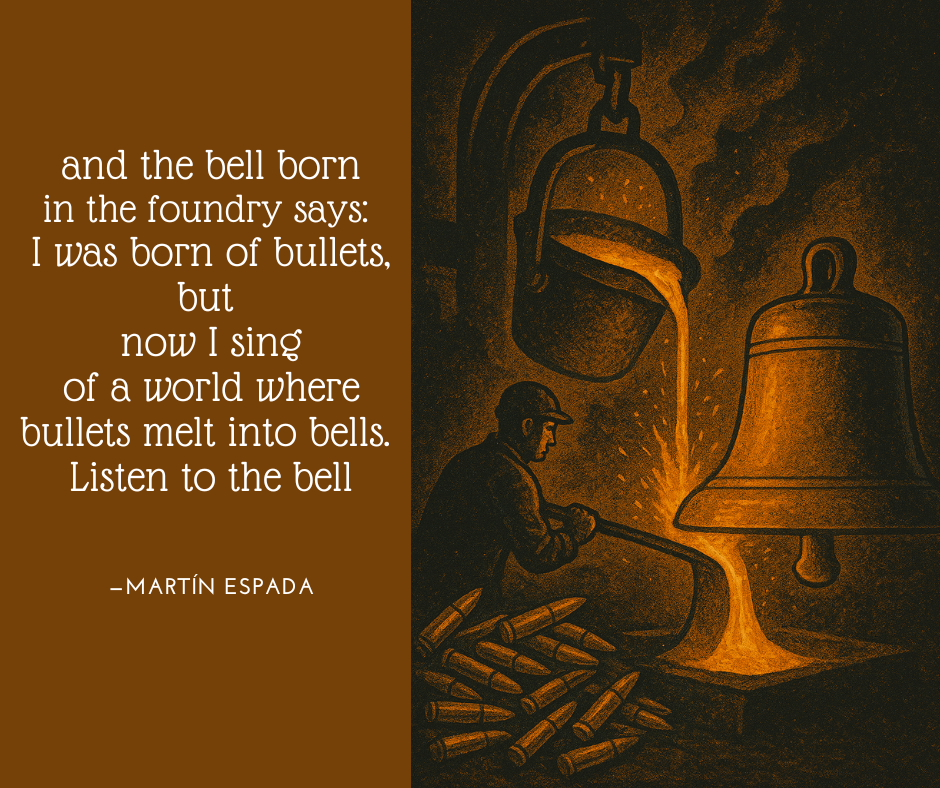
Now the bells speak with their tongues of
bronze.
Now the bells open their mouths of bronze to
say:
Listen to the bells a world away. Listen to the
bell in the ruins
of a city where children gathered copper shells
like beach glass,
and the copper boiled in the foundry, and the
bell born
in the foundry says: I was born of bullets, but
now I sing
of a world where bullets melt into bells. Listen
to the bell
in a city where cannons from the armies of the
Great War
sank into molten metal bubbling like a vat of
chocolate,
and the many mouths that once spoke the
tongue of smoke
form the one mouth of a bell that says: I was
born of cannons,
but now I sing of a world where cannons melt into bells.
Listen to the bells in a town with a flagpole on
Main Street,
a rooster weathervane keeping watch atop the
Meeting House,
the congregation gathering to sing in times of
great silence.
Here the bells rock their heads of bronze as if
to say:
Melt the bullets into bells, melt the bullets into
bells.
Here the bells raise their heavy heads as if
to say:
Melt the cannons into bells, melt the cannons
into bells.
Here the bells sing of a world where weapons
crumble deep
in the earth, and no one remembers where they
were buried.
Now the bells pass the word at midnight in the
ancient language
of bronze, from bell to bell, like ships
smuggling news of liberation
from island to island, the song rippling through
the clouds.
Now the bells chime like the muscle beating in
every chest,
heal the cracks in the bell of every face
listening to the bells.
The chimes heal the cracks in the bell of the
moon.
The chimes heal the cracks in the bell of the
world.
—Martín Espada
(for the community of Newtown, Connecticut, where twenty students and six educators lost their lives to a gunman at Sandy Hook Elementary School, December 14, 2012)
